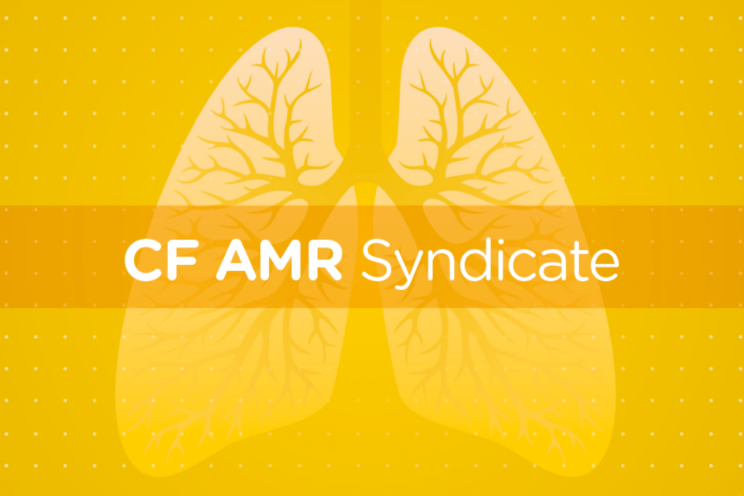
Exploring the theme of ‘lifting the limits together’, this week (13-19 June) marks Cystic Fibrosis (CF) Week 2022. The event is a week-long opportunity to celebrate the courage and resilience shown by the CF community, whilst raising awareness and demystifying misconceptions surrounding the disease.
CF is an inherited life-limiting multiorgan disease affecting over 10,800 people across the UK, however, there is urgent unmet need when it comes to the discovery and development of new antimicrobials and diagnostics to treat infections associated with the condition.
Medicines Discovery Catapult (MDC) is supporting CF Week by highlighting the work of the CF Antimicrobial Resistance (AMR) Syndicate.
In response to the unmet need, MDC – in partnership with the Cystic Fibrosis Trust – established the CF AMR Syndicate in 2019.
The Syndicate brings people with CF together with leading experts across industry, academia, and clinics. Its overall aim is to accelerate the development of CF antimicrobials and diagnostics, bringing new treatments to people with CF, faster.
The CF AMR Syndicate has established extensive expertise in CF and AMR to understand the barriers to innovation, working together to ‘lift the limits’ of CF antimicrobial development through implementing innovative solutions to address them. Initiatives include:
The CF AMR Syndicate website and network will also be launched to coincide with CF Week 2022, providing important resources to further bring the community together around this critical patient need.
MDC colleagues will also support the Trust’s ‘Wear Yellow Day’ on 17 June, donning their best and brightest yellow clothes to raise money to help create a brighter future for people living with CF.
For those living with CF, the lungs are the most commonly affected organ, with many people experiencing a build-up of thick sticky mucus in their lungs, digestive system and other organs, which leads to several health complications. The build-up of excess mucus in the lungs leads to the development of frequent and persistent infections that are difficult to treat.
Treatment failure due to AMR is frequently seen in people with CF which, in turn, causes worsening lung function, respiratory failure and death.
MDC has also launched an innovative philanthropic programme with We Share Forward to support innovative start-ups developing new CF antimicrobials and further accelerate discovery and development, which is now actively supporting three early-stage companies.
The partnership brings together We Share Forward’s innovative impact-driven revolving funding model with the CF AMR Syndicate, enabling the development of new treatments to address CF patient needs by providing access to long-term philanthropic capital for early-stage start-ups.
Three promising start-ups have been identified and are being supported through a bridge funding programme. In autumn, one or two start-ups will be selected to receive up to €300,000 for the development of the project. MDC and We Share Forward are actively engaging with potential donors to support the programme through philanthropic funding. Further information for interested donors is available on We Share Forward’s website.
Jessica Lee, Head of Patient-Focused Partnerships at Medicines Discovery Catapult, said:
“CF Week is a fantastic opportunity to draw attention to this area of urgent unmet patient need, and this year’s theme of ‘lift the limits together’ is particularly pertinent for the CF AMR Syndicate.
“Through the Syndicate, we continue to bring people with CF together with leading experts across industry, academia, and the clinic to lift the limits of medicines R&D, accelerating the development of CF antimicrobials to bring new treatments to people with CF, faster.”
Dr Nicola Heron, Chief Business Officer at Medicines Discovery Catapult, said:
“The COVID-19 pandemic coupled with new data on deaths attributable to antimicrobial resistance have brought renewed attention to the threat posed by infectious disease (ID). There is an urgent need for new vaccines, therapeutics and diagnostics to control and treat ID including those caused by multi-drug resistant micro-organisms, yet it is widely recognised that the current pipeline is insufficient and fragile.
“The early pipeline in ID is largely in the hands of SMEs and they need the support of multiple cross-sector players to provide the technical and financial support necessary to transform the pipeline.
“Through the CF AMR Syndicate, MDC has already established a strong position in the UK infectious disease landscape and is now looking to expand its reach and impact by leveraging the UK’s national strength to bring a renewed focus to translational innovation in ID through co-ordinating and strengthening the UK antimicrobial, vaccine and diagnostic pipelines.”
Dr Paula Sommer, Head of Research at Cystic Fibrosis Trust, said:
“While antimicrobial resistance (AMR) is a concern for us all, people living with CF are particularly vulnerable to it. This is because antimicrobial drugs are an important part of day-to-day treatment for people with CF, as well as the specific challenges of treating CF-related lung infections.
“We are delighted that our partnership with MDC has enabled the Syndicate to drive forward initiatives aimed at helping innovators navigate the complex drug development pathways in CF antimicrobial development. Ultimately these will benefit people with CF.”
More information on CF Week 2022 >